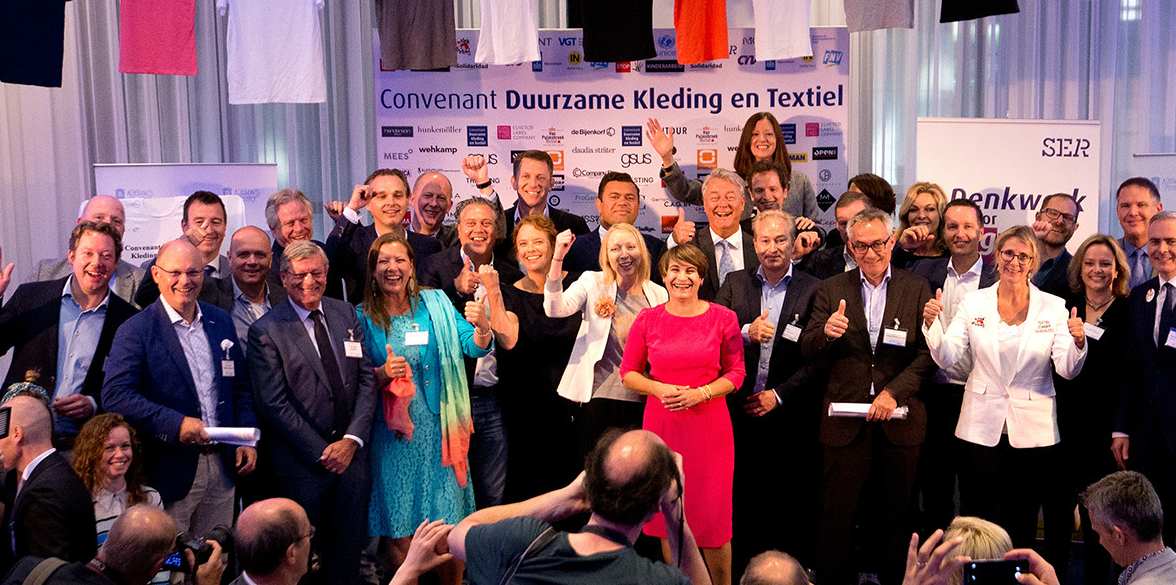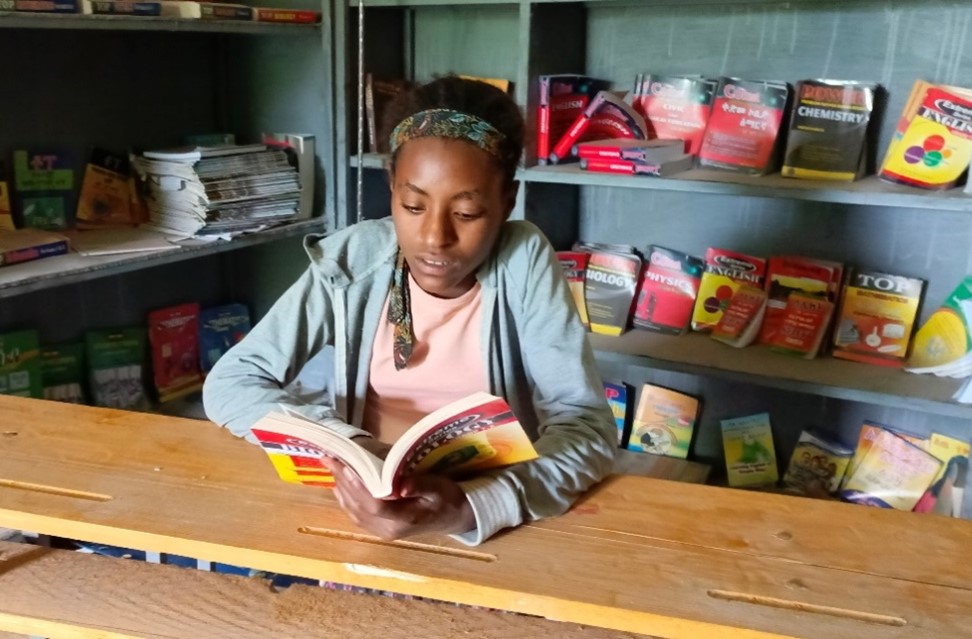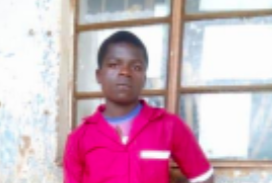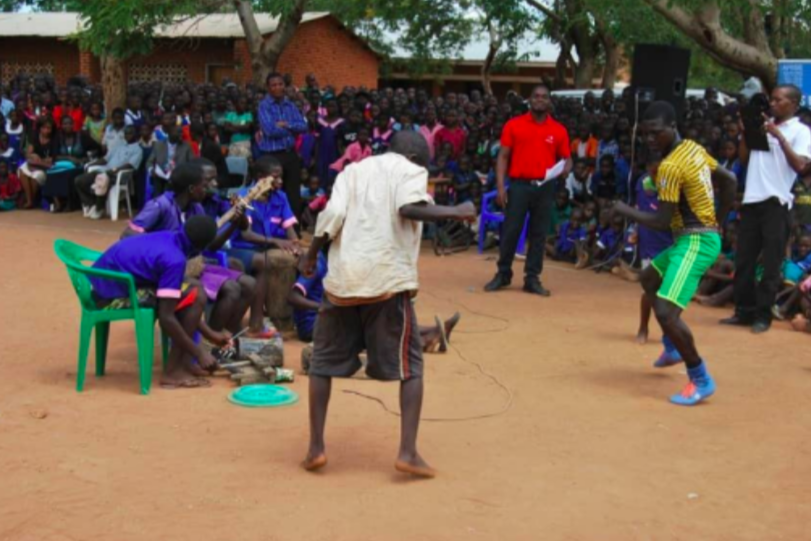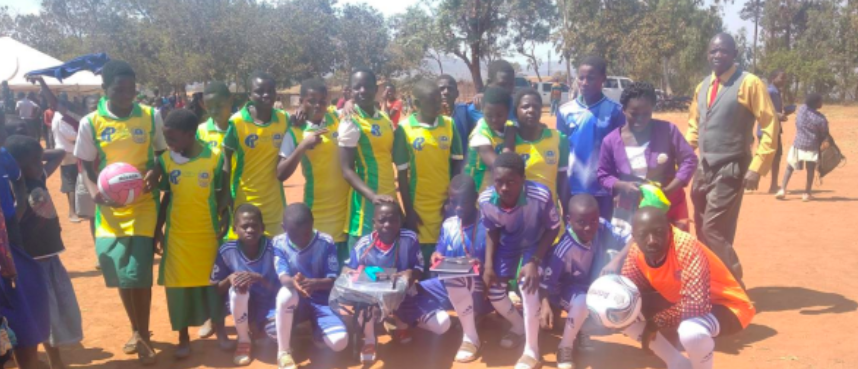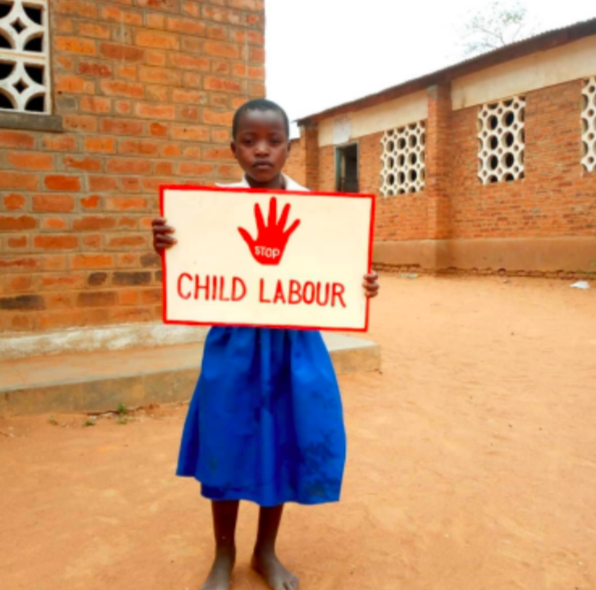Stop Child Labour signed a Sustainable Garment and Textile Sector Covenant today, together with 55 businesses, their trade organisations, the Dutch government and several other NGOs. A broad coalition has joined forces in this agreement. It is the first time, in the Netherlands and worldwide, that such a large group of companies has committed themselves to work together towards a more sustainable garment and textile industry.
Sofie Ovaa, programme manager of Stop Child Labour: “In recent years, the Garment and Textile Sector has increasingly been looking at fighting child labour and other violations in their supply chains. The agreement that is signed today is an important next step to fight the issues in this sector. The companies that signed the agreement demonstrate that they take these issues seriously and that they are committed to fight child labour in their entire supply chain. Unique to this Covenant, among other things, is that child labour and other abuses “from cotton to clothing” will be identified and addressed within three to five years.
Together, the participating businesses represent more than a third of the revenue generated in the Dutch market. The aim is for at least 50% of the Dutch garment and textile sector to sign the agreement by 2018, and 80% by 2020.
Cooperation
The participants will work together on achieving sustainability targets that would be difficult or impossible to achieve alone. The businesses involved will draw up an annual action plan identifying specific goals. Their plan will be based on an investigation of problems and risks among their own suppliers and in their own production and supply chain. An independent secretariat, that will be based at the Social and Economic Council of the Netherlands (SER), will assess the quality and ambitions of these improvement plans.
Stop Child Labour has, together with Unicef, drafted the chapter on child labour in this agreement. Both organisations will offer their knowledge and expertise and are committed to involve, where possible, local partners in implementing the plans. These organizations can also play a role in monitoring the implementation of the agreements made. They may also – if necessary – submit a complaint to the independent disputes and complaints commission of the covenant whose decisions are final and can – in the end – lead to binding arbitration by the Dutch Arbitration Institute.
Openness
The parties to the agreement will report on annual basis on their relevant activities and on the progress they have made. Starting in the third year of their participation, the individual businesses will communicate their activities and progress to the public.

